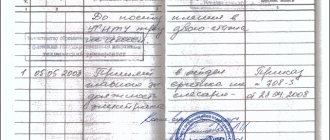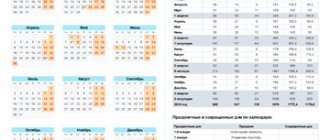For the first time, the concept of a risk-based approach when conducting inspections appeared in the Federal Law of December 26, 2008 No. 294-FZ “On the protection of the rights of legal entities and individual entrepreneurs in the exercise of state control (supervision) and municipal control” (as amended on October 30, 2017; hereinafter referred to as Federal Law No. 294-FZ) in connection with the adoption of Federal Law No. 246-FZ of July 13, 2015 “On Amendments to the Federal Law “On the Protection of the Rights of Legal Entities and Individual Entrepreneurs in the Exercise of State Control (Supervision) and Municipal Control” ", which came into force on July 14, 2015.
As a general rule, according to Part 2 of Art. 2 of the said Federal Law No. 246-FZ, the risk-based approach to state control (supervision) has been applied since January 1, 2018. However, the Government of the Russian Federation has the right to define certain types of state control (supervision), which, using a risk-based approach, can be carried out before January 1, 2021
What is controlled using a risk-based approach
Decree of the Government of the Russian Federation dated August 17, 2016 No. 806 “On the application of a risk-based approach when organizing certain types of state control (supervision) and introducing amendments to certain acts of the Government of the Russian Federation” (as amended on July 22, 2017) approved:
- Rules for classifying the activities of legal entities and individual entrepreneurs and (or) production facilities used by them to a certain risk category or a certain class (category) of danger (hereinafter referred to as the Rules);
- a list of types of state control (supervision) that are carried out using a risk-based approach (hereinafter referred to as the List).
Clause 4 of the List names federal state supervision over compliance with labor legislation and other regulatory legal acts containing labor law norms.
Resolution of the Government of the Russian Federation dated September 1, 2012 No. 875 (as amended on February 16, 2017) approved the Regulations on federal state supervision of compliance with labor legislation and other regulatory legal acts containing labor law norms (hereinafter referred to as the Regulations).
Federal state supervision in the field of labor using a risk-based approach is carried out in relation to employers - legal entities (organizations) and individuals registered as individual entrepreneurs[1].
GIT checks: how to prepare, what to expect, how to behave correctly
Probably, every employer has had to go through such an unpleasant event as an inspection, and those who do not yet know all the nuances will sooner or later have to endure this. To help managers and HR specialists - a consultation-memo from Alexander Yuzhalin, consultant of the Labor Law Department of IPK Group.
Inspections by state control bodies can be initiated for various reasons, but the requirements and regulations are always the same, and they are established by the legislation of the Russian Federation.
Accordingly, the result of the inspection largely depends on how aware the employer is of his rights and how well he has information about the rules that the authorized inspection body is obliged to comply with.
In this article we will look at the procedure for passing an inspection by the State Labor Inspectorate of the Russian Federation (hereinafter referred to as the State Labor Inspectorate). To begin with, let’s define the key requirements that the law imposes on the procedure for checking organizations and individual entrepreneurs by state supervisory authorities.
Issues related to labor inspection inspections are regulated by two main legal acts:
- Federal Law of December 26, 2008 N 294-FZ “On the protection of the rights of legal entities and individual entrepreneurs in the exercise of state control (supervision) and municipal control”;
- Order of the Ministry of Labor of Russia dated October 30, 2012 N 354n “On approval of the Administrative Regulations for the execution by the Federal Service for Labor and Employment of the state function of exercising federal state supervision over compliance with labor legislation and other regulatory legal acts containing labor law norms.”
As is known, the legislation distinguishes two types of inspections: scheduled and unscheduled.
Scheduled inspection
Such an inspection is carried out without fail by state supervisory authorities (including State Tax Inspectorate) at certain intervals. Its purpose is to identify violations of certain legal requirements by a legal entity. In this case, non-compliance with labor law standards.
A scheduled inspection can be either on-site or documentary. During a documentary check, an organization or individual entrepreneur must send the necessary package of documents to the inspection body according to the relevant order. As a rule, a government agency is limited to a documentary check.
However, the law identifies cases when an on-site inspection can be initiated. Thus, according to Article 12 of Federal Law N 294-FZ, an on-site scheduled inspection is carried out in cases where during a documentary inspection it is not possible:
- verify the completeness and accuracy of the information contained in the notification of the commencement of certain types of business activities and other documents of the legal entity (individual entrepreneur);
- assess the compliance of the activities of a legal entity (individual entrepreneur) with the mandatory requirements of the law without on-site confirmation.
Unlike a documentary inspection, an on-site inspection - both scheduled and unscheduled - is carried out at the location of the legal entity (IP) and/or at the place of their actual activities.
You can find out whether your organization will be inspected this year on the official website of the Prosecutor General's Office of the Russian Federation. The annual consolidated plan of scheduled inspections is approved by the Prosecutor General's Office and published in the public domain by December 31 of the current calendar year. To find your company in the unified register, just enter the TIN, OGRN or name (surname of individual entrepreneur) in the search form.
Is it possible to escape supervision?
It must be remembered that scheduled inspections are carried out no more than once every three years (with the exception of certain cases - for example, inspections in the healthcare sector).
However, few employers know: even if the organization is included in the annual control plan, mandatory inspection can be avoided. This benefit is established by Article 26.1 of Federal Law No. 294-FZ. From January 1, 2021 to December 31, 2018, scheduled inspections are not carried out in relation to legal entities (IP) classified as small businesses in accordance with the provisions of Article 4 of the Federal Law of July 24, 2007 N 209-FZ “On the Development of Small and Medium-Sized Businesses” entrepreneurship in the Russian Federation".
The only exceptions are special cases. For example, if a resolution on administrative punishment for a gross violation was previously issued against the company and entered into legal force.
In other cases, having found themselves in the unified register of the Prosecutor General's Office, small or medium-sized businesses have the right to submit an application to the supervisory authority with a justified request to exclude the company from the inspection plan.
Unscheduled inspections
With regard to unscheduled inspections, things are completely different. A legitimate reason for an unscheduled inspection of the State Labor Inspectorate can be almost any identified facts of non-compliance by employers with the provisions of labor legislation and other regulations containing labor law norms, including violations of labor protection requirements that entail a threat of harm to the life and health of workers.
The Labor Inspectorate takes into account:
- information from government authorities;
- data from the media;
- appeals and applications from citizens, including individual entrepreneurs and legal entities;
- an employee’s appeal or statement about the employer’s violation of his labor rights;
- requests from employees to check labor conditions and safety at their workplace.
In addition, the following are considered justification:
- orders (instructions) of the head (deputy head) of the Federal Labor Inspectorate to conduct an unscheduled inspection, issued in accordance with the instructions of the President of the Russian Federation or the Government of the Russian Federation;
- demands of the prosecutor to conduct an unscheduled inspection as part of supervision over the implementation of legislative norms based on materials and appeals received by the prosecutor's office.
As practice confirms, one of the most common reasons for a sudden visit by labor inspectors is a complaint from an employee about a violation of his labor rights. That is, any statement by an employee who believes that his rights have been violated, filed in accordance with the requirements of labor legislation, is recognized as the basis for an unscheduled inspection of the employer.
It must be taken into account that anonymous statements and appeals from citizens cannot serve as a basis for an unscheduled inspection.
The powers of inspectors are not unlimited
It is important to know about the restrictions and requirements that the law establishes for the supervisory authority when conducting all types of inspections - both scheduled and unscheduled.
Limitations on the duration of events. Any verification cannot last more than 20 working days. Within one year, the total period of scheduled on-site inspections in relation to one small business entity cannot exceed 50 hours for a small enterprise and 15 hours for a micro-enterprise.
Limitations on the timing of notification of the start of an inspection. The municipal control body must notify a legal entity or individual entrepreneur about the upcoming scheduled inspection no later than 3 working days before its start. A copy of the manager's order or order is sent by registered mail with mandatory return receipt or by any other available method. Supervisory authorities are required to notify about an unscheduled on-site inspection at least 24 hours before its start; notification is given by any available means.
The inspection inspector will certainly request documents for analysis, the results of which will draw a conclusion whether the employer violates any provisions of the law. When requesting certain documents, you need to make sure whether they are relevant to the subject of the audit. A closed list of documents that inspectors have the right to request from an employer is not established by law.
What do they check first?
In practice, you can identify the main documents that are most likely to be requested by the inspector. First of all, these include:
- employment contracts and agreements thereto;
- work books;
- staffing schedule;
- vacation schedules;
- personal cards of employees;
- time sheets;
- a book of accounting for the movement of work books and inserts for them;
- receipt and expenditure book for recording forms of work books and inserts for them;
- time sheets;
- local regulations (primarily the Internal Labor Regulations, local act on remuneration);
- orders for core activities and personnel.
But, as noted earlier, this list of documents is open. This means that the inspector has the right to demand another document related to the subject of the inspection. However, to minimize risks, the first step is to bring the above-mentioned personnel documents into compliance with the requirements of current legislation.
What to do during an inspection
So, let's return directly to the verification procedure itself. The employer is recommended:
1) demand the presentation of official identification of officials who arrived with the inspection, and make sure that these specialists have the right to act on behalf of the state labor inspectorate;
2) receive a stamped copy of the order (order) of the head (deputy) of the state control (supervision) body to conduct an inspection*.
*We would like to remind you that the order (order) of the head of the inspecting state supervisory body is the basis for conducting an inspection.
When presenting a copy of this document, the employer should carefully read its contents. In particular, it is important to study:
- legal basis for the inspection itself;
- list of direct participants of the inspection team;
- the period during which the inspection is carried out;
- documents that will be analyzed during the verification process.
It should be remembered that an inspection initiated for the purpose of performing a state function cannot be carried out, and one already begun must be terminated if it is established:
- there are no grounds for conducting an inspection;
- the subject of the inspection does not comply with the powers of Rostrud and its territorial bodies.
3) be directly present during the inspection, give explanations on issues related to its subject;
4) get acquainted with the results and confirm your awareness in the inspection report: in particular, express agreement or disagreement with the inspector’s conclusions and individual actions of officials of the state control body;
5) appeal against the actions (inaction) of officials of the state control (supervision) body in administrative and/or judicial proceedings in accordance with the legislation of the Russian Federation;
6) involve the Commissioner under the President of the Russian Federation for the protection of the rights of entrepreneurs or the Commissioner for the protection of the rights of entrepreneurs in a constituent entity of the Russian Federation to participate in the inspection.
Check ends: what is important to remember?
You should approach the issue of paperwork at the end of the inspection no less carefully.
Based on the results of the inspection by officials of the state control (supervision) body, an act is drawn up in the prescribed form in two copies.
The act specifies:
1) date, time and place of its preparation;
2) name of the state control (supervision) body or municipal control body;
3) date and number of the order or order of the head, deputy head of the state control (supervision) body, municipal control body;
4) last names, first names, patronymics and positions of the specialists who conducted the inspection;
5) the name of the legal entity being inspected or the last name, first name and patronymic of an individual entrepreneur, as well as the last name, first name, patronymic and position of the manager, other official or authorized representative of the legal entity;
6) date, time, duration and place of the inspection;
7) information about the results of the inspection, including any violations of mandatory requirements identified;


9) information about making an entry in the audit log about the inspection performed or about the impossibility of making such an entry due to the absence of the specified log at the legal entity or individual entrepreneur;
9) signatures of the official or officials who conducted the inspection.
Of course, when monitoring the preparation of the final act, it is extremely important to show utmost responsibility, and if any comments or objections arise, be sure to make a note.
Where labor inspectors stumble
Inspection bodies most often make the following mistakes:
- there are no grounds for conducting an inspection;
- the start or end dates of the inspection are violated;
- notification of the start of the inspection is not received within the prescribed period;
- the inspection begins without a directive or order from the head of the regulatory body;
- documents are requested that are not related to the subject of the inspection;
- the inspection report is not provided for review;
- a scheduled inspection of a legal entity (IP) not included in the annual plan is initiated.
Any of the above errors by the inspector will be grounds for invalidating the inspection results.
So, taking into account judicial and inspection practice, we can draw an unambiguous conclusion. The result of each inspection depends to a very large extent on the competent approach of the inspection body and the correct execution of all necessary documents. By and large, this result is expressed in whether the employer will be held administratively liable or not.
Accordingly, knowledge of your rights, careful monitoring of the actions of officials, and correct execution of documents greatly increases the employer’s chances of emerging victorious at the end of the inspection. After all, any deviation of the inspection body from the letter of the law can play a key role in the issue of bringing to administrative liability - especially considering that recently the state labor inspectorate has held employers accountable for each individual case of violation of labor legislation. Thus, the opportunity to appeal the actions of an inspector who himself does not comply with the requirements of the law can help save hundreds of thousands of rubles.
Alexander Yuzhalin, consultant of the Labor Law Department of IPK Group , specialist in labor legislation
Who determines the risk category or hazard class
When applying a risk-based approach to conducting inspections of compliance with labor legislation, the activities of employers (organizations, individual entrepreneurs) fall into a certain risk category in accordance with the Rules.
In accordance with clause 18 of the Regulations, classifying the activities of an organization or individual entrepreneur as a risk category is carried out:
- by the decision of the chief state labor inspector of the Russian Federation (his deputy) - if classified as a high-risk category;
- by the decision of the chief state labor inspector in a constituent entity of the Russian Federation (his deputy) - when classified as a significant, medium and moderate risk.
The list of risk categories or hazard classes used in the implementation of a particular type of state control (supervision) includes from 3 to 6 risk categories or from 3 to 6 hazard classes from among the risk categories and hazard classes.
Risk categories and hazard classes (categories) are given in the Appendix to the Rules.
Innovations for 2021
From 2021, labor inspectors, when implementing planned inspection activities, must be guided by a standard list of questions from the checklist. The checklists include questions regarding the most important requirements for employers. Their form is approved at the legislative level. Until mid-2021, the new system for identifying offenses on standard issues applied only to employers from a moderate risk group; since July 2021, the norm has become relevant for all business entities (Resolution of the Government of the Russian Federation dated September 8, 2017 No. 1080).
In 2021, labor inspectors have an additional basis for ordering an inspection of an employer - an appeal from citizens or legal entities about evasion of concluding an employment contract between an employer and an employee, its improper execution, or the conclusion of a GPC agreement where labor relations actually take place. Such changes were made by Law No. 502-FZ of December 31, 2017 to Article 360 of the Labor Code of the Russian Federation.
How to calculate the coefficient of sustainability of conscientious behavior
When calculating the indicator of the potential risk of harm to legally protected values in the world of work for organizations or individual entrepreneurs, the sustainability coefficient of their conscientious behavior associated with the implementation of mandatory requirements (Ku) is taken into account [2]. This coefficient is calculated for each employer based on the availability of:
- accidents recognized as production-related;
- wage arrears;
- imposed administrative penalties for violation of mandatory labor requirements.
- data from departmental reporting on the results of inspections submitted by territorial bodies of Rostrud for the three years preceding the current one. Departmental reports on the activities of labor inspectorates in the constituent entities of the Russian Federation contain information on administrative offenses, including those initiated by prosecutors;
- information about injuries for the three years preceding the current one;
- information about wage arrears for the previous year.
Frequency of Rostrud inspections in 2018
Previously, the frequency of planned monitoring of gastrointestinal tracts was determined according to the general norm of Part 2 of Art. 9 of Law 294-FZ - no more than once every 3 years. Now it depends on the risk category of the employer (clause 20 of the Regulations on the Federal State Tax Fund for Labor):
- high - once every 2 years;
- significant - once every 3 years;
- average - once every 5 years;
- moderate - once every 6 years;
- low - no checks are carried out.
The basis for including an enterprise in the inspection plan is the expiration of the specified period from the date (part 8 of article 9 of Law 294-FZ, clause 35 of the Administrative Regulations):
- enterprise registration;
- carrying out the last scheduled inspection;
- the beginning of an activity, which must be notified to Rostrud (in accordance with clause 5.1 of the Rules, approved by Decree of the Government of the Russian Federation of July 16, 2009 No. 584, such activities include care with accommodation and social services without accommodation).
The specified list of grounds is exhaustive. Carrying out an inspection without a reason entails the invalidity of its results (clause 1, part 2, article 20 of Law 294-FZ).
How often are scheduled inspections carried out?
Scheduled inspections of the activities of an organization or individual entrepreneur, depending on the risk category assigned to their activities, are carried out with the following frequency[4]:
- for the high-risk category - once every two years;
- for the significant risk category - once every three years;
- for the medium risk category - no more than once every five years;
- for the moderate risk category - no more than once every six years.
In relation to an organization or individual entrepreneur whose activities are classified as low risk, scheduled inspections are not carried out .
How can an employer find out if he is included in the Rostrud inspection plan for 2021?
By law, information about planned control activities must be publicly available. Employers can find out about upcoming control by the State Tax Inspectorate in 2 ways.
Firstly, the schedule of inspections of the labor inspectorate for 2021 must be published on its regional Internet portals by December 1, 2017. This is the requirement of Part 5 of Art. 9 of Law 294-FZ and clause 40 of the Administrative Regulations. As a rule, the plan is posted as a file in Excel format.
Secondly, information about scheduled inspections by all supervisory authorities is included in a single consolidated plan for inspections of business entities (Part 7, Article 9 of Law 294-FZ). It is being prepared by the Prosecutor General's Office of the Russian Federation. You can find out whether labor inspection inspections are planned for a particular employer for 2018 (as well as inspections by other bodies) using a special service on the department’s website. To use it, it is enough to enter at least the TIN or OGRN/OGRNIP of the enterprise.
Please note that you can only find out in advance the calendar month of the inspection and its duration, and not the specific start date. The employer learns about the start and end dates of the control upon receipt of a copy of the State Labor Inspectorate’s order to conduct the inspection, which must be handed to him at least 3 working days before the control activities (Part 12, Article 9 of Law 294-FZ).
How can an organization find out its risk category?
On the official website of Rostrud, until July 1 of the year preceding the year of scheduled inspections, the following information about organizations or individual entrepreneurs whose activities are classified as high and significant risks is posted and kept up to date[5]:
- full name of the legal entity (organization), last name, first name and patronymic (if any) of the individual entrepreneur;
- main state registration number (OGRN);
- individual taxpayer number (TIN);
- location of a legal entity or individual entrepreneur;
- place of activity of a legal entity or individual entrepreneur;
- an indication of the risk category, the date of the decision to classify the activities of a legal entity or individual entrepreneur as a risk category.
Currently, the following lists of employers are published on the official website of Rostrud:
- List of employers whose activities are classified as high risk;
- List of employers whose activities are classified as a significant risk.
Order of Rostrud dated June 14, 2017 No. 350 approved the list of employers - legal entities and employers - individuals registered in the prescribed manner as individual entrepreneurs and carrying out entrepreneurial activities without forming a legal entity, classified as high-risk.
The above lists will guide labor inspectorates when conducting inspections of employers.
Thus, an employer can find out his risk category by contacting:
- to the lists of organizations or individual entrepreneurs whose activities are classified as high and significant risks, posted on the Internet on the official website of Rostrud;
- with a written request to the Federal Service for Labor and Employment. At the request of the employer, Rostrud must provide information about the risk category assigned to its activities.
Violation of wage rules
This is the most popular type of violations detected during GIT inspections. Most often, employers are caught for non-payment of wages and other charges, incomplete payment, violation of payment deadlines, and also for charging a salary less than that provided by law. In 2021, liability for violations in this area was once again tightened ( Federal Law No. 272-FZ dated July 3, 2016 ): for organizations, fines can amount to up to 50,000 rubles. Repeated violations are punished much more severely - up to disqualification, that is, deprivation of the head of the enterprise of the right to hold a position for a period of one to three years.
Penalties
| For officials | Fine from 10,000 to 20,000 rubles. |
| For individual entrepreneurs | Fine from 1,000 to 5,000 rubles. | |
| For legal entities | Fine from 30,000 to 50,000 rubles. | |
| Repeated violation of the legislation on wages, that is, the person was previously punished for a similar offense (Part 7 of Article 5.27 of the Code of Administrative Offenses of the Russian Federation) | For officials | Fine from 20,000 to 30,000 rubles. or disqualification from one to three years. |
| For individual entrepreneurs | Fine from 10,000 to 30,000 rubles. | |
| For legal entities | Fine from 50,000 to 100,000 rubles. |
As a rule, the head of the organization or an employee temporarily replacing him is held accountable for violations in the field of wages, but the chief accountant can also be held accountable if his guilt is established in the untimely payment of vacation pay or delayed wages.
Can the GIT inspection schedule for 2018 be changed?
Not all enterprises whose next inspection deadline has come are included in the inspection plan. But if the inspection was never planned, the enterprise cannot be included in it for a year.
The list of cases in which the plan is subject to adjustment is exhaustive and is established in clause 7 of the Rules for the Preparation of Plans and clause 41 of the Administrative Regulations. An inspection may be excluded from the plan if it is impossible to carry out due to:
- liquidation of an organization, termination of the activities of an individual entrepreneur;
- circumstances of force majeure.
Other changes may be made for reasons such as:
- changes in the location or address of the organization/entrepreneur;
- change of organization name, full name entrepreneur;
- reorganization of a legal entity.
These changes do not entail exclusion of the inspection from the plan or shift in deadlines.
Small businesses who believe that they were included in the inspection plan unreasonably (in violation of Article 26.1 of Law 294-FZ) have the right to submit an application to exclude themselves from the inspection plan. A positive result of consideration of the application is the basis for excluding the corresponding inspection from the plan.
Examples of questions contained in HR checklists
In order to have an idea of what questions may be contained in the checklists, here are some of them. The first check block (Appendix No. 1 to Order No. 655) contains the following questions:
- Are the conditions on the form of the employment contract met?
- Are the requirements for medical examinations observed for workers engaged in work with harmful and dangerous conditions?
- Did newly hired employees receive copies of employment contracts?
- Were civil contracts concluded instead of employment agreements?
- Are the requirements for drawing up employment orders met?
- Are employees familiar with local regulations and collective agreements?




